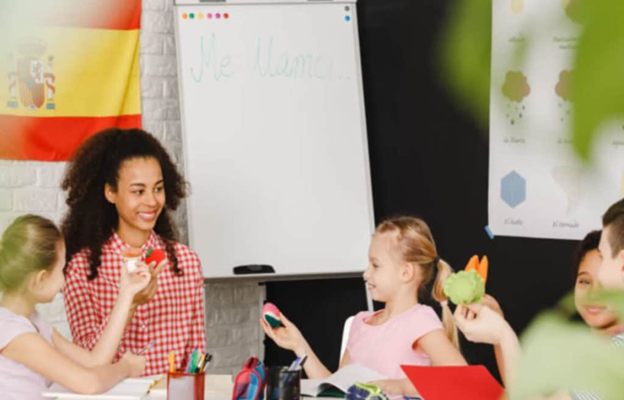In a faith-based Christian school setting, students receive an education from caring teachers who are dedicated to their well-being. The vision for the Spanish immersion program is for elementary students to achieve biliteracy within a rigorous academic environment comparable to any standard curriculum. Through this program, students will acquire skills that benefit both the local community and the broader global community.
Here are five key benefits of the Spanish Immersion Program in a faith-based elementary school setting.
1. Bilingualism
One of the most significant benefits is the development of bilingualism. Learning a second language at a young age is easier than learning it later in life. The immersion program exposes students to the Spanish language naturally and authentically, allowing them to develop a deeper understanding and become proficient in it. Bilingualism has numerous advantages, including improved cognitive function, better problem-solving skills, and increased job opportunities in the future.
2. Cultural Awareness
Learning a new language also means learning about the culture that speaks it. Spanish immersion programs offer a unique opportunity for students to learn about Spanish and Latin American cultures, including traditions, history, and customs. For example, a sixth-grade class had the opportunity to cook authentic Spanish dishes, providing students with hands-on learning in the language they were studying. This cultural awareness helps students develop a deeper understanding and appreciation for diverse cultures and peoples. It also helps them become more empathetic and accepting of others, an essential skill in today’s increasingly diverse society.
3. Improved Academic Performance
Studies have shown that students in immersion programs often perform better academically than their peers in traditional language programs. The immersive environment provides students with more opportunities to practice their language skills, which can lead to improved cognitive function and higher academic achievement. Additionally, learning a second language has been linked to better problem-solving skills, enhanced creativity, and improved critical thinking abilities.
4. Enhanced Communication Skills
Learning a second language also enhances communication skills. Spanish immersion programs encourage students to communicate in Spanish with their peers and teachers, which helps them develop strong listening, speaking, reading, and writing skills. These abilities are essential for effective communication, not just in Spanish but also in English and other languages.
5. Global Perspective
Finally, Spanish immersion programs provide students with a global perspective. As our world becomes increasingly interconnected, it is crucial for students to understand and appreciate different cultures and languages. Learning Spanish in an immersive environment helps students develop a global mindset and prepares them for the challenges of an increasingly globalized world.
Spanish immersion programs in elementary schools provide numerous benefits, such as bilingualism, cultural awareness, improved academic performance, enhanced communication skills, and a global perspective. Learning Spanish in an immersive environment allows students to gain a deeper understanding of the language, culture, and people who speak it. These skills and experiences will serve them well throughout their academic and professional careers, enriching their overall quality of life.











